Mentions
Where my work has been mentioned in the news or policy briefs!Labor Market Access and Outcomes for Refugees (2023)
Joint Data Center
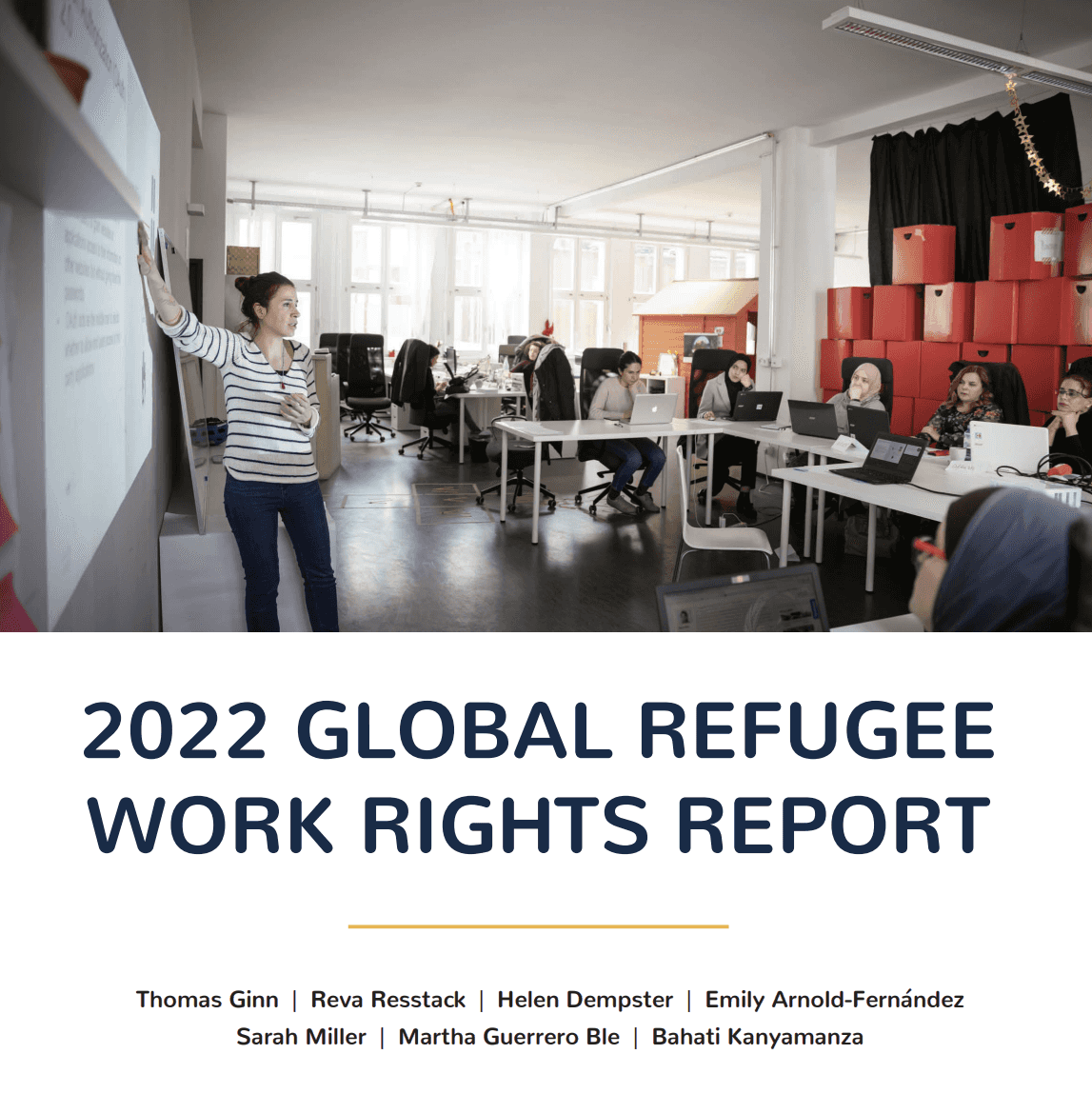
2022 Global Refugee Work Rights Report (2022)
Center for Global Development
Human Security Today: Revisiting Human Security (2022)
JICA Ogata Research Institute

World Refugee Day: Five Things We’re Watching in 2022 (2022)
Center for Global Development
At the end of May, UNHCR announced that over 100 million people are currently displaced around the world. That’s equivalent to a third of the total US population. The sobering reality is that many people have been pushed out of their homes, but how are they faring now?
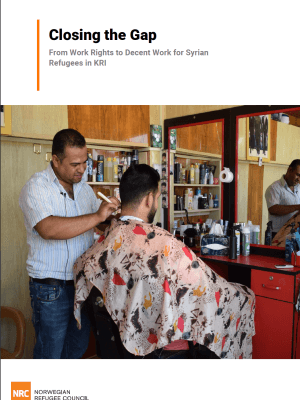
Closing the Gap (2022)
Norwegian Refugee Council
Syrian refugees in the Kurdistan Region of Iraq (KRI) are in need of decent work opportunities. While Iraqis and Syrian refugees are struggling in the midst of a weakening economy, NRC’s research highlights the barriers and work rights violations faced by Syrians in KRI.
Cuando La Coyuntura Se Encuentra Con La Estructura: Viñetas Sobre El Desarrollo Y La Crisis Del Covid-19 En América Latina Y El Caribe (2022)
UNDP
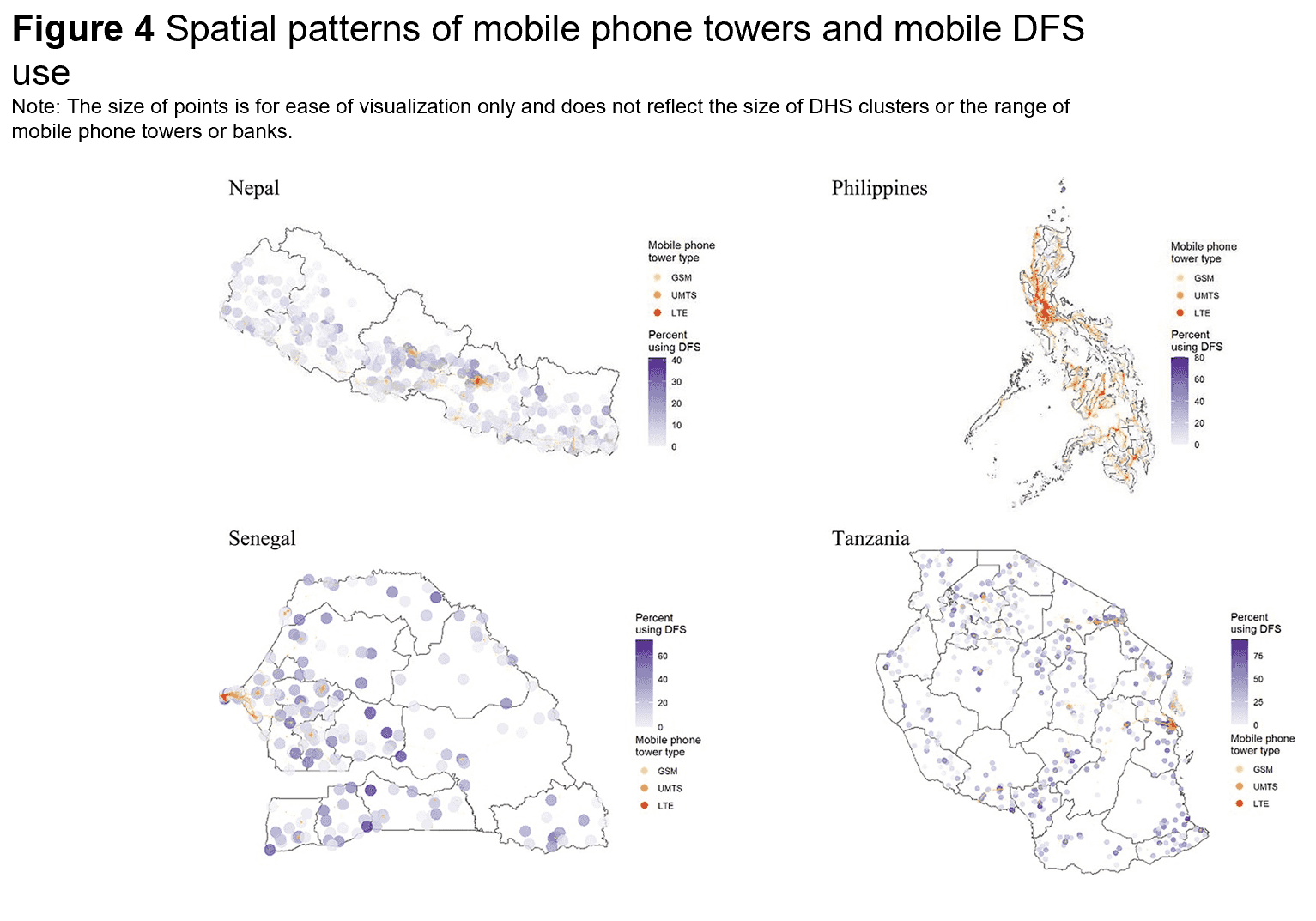
Digital finance doesn’t reduce inequality; it perpetuates it (2022)
Oxford University Press Press Release
A new paper in Oxford Open Economics, published by Oxford University Press, indicates that, while digital financial services are often proposed as a vehicle to lower inequality, the cost and infrastructure barriers to accessing mobile phones may amplify economic disparities among women in developing countries.
Building Resilient Migration Systems in the Mediterranean Region: Lessons From Covid-19 (2022)
World Bank
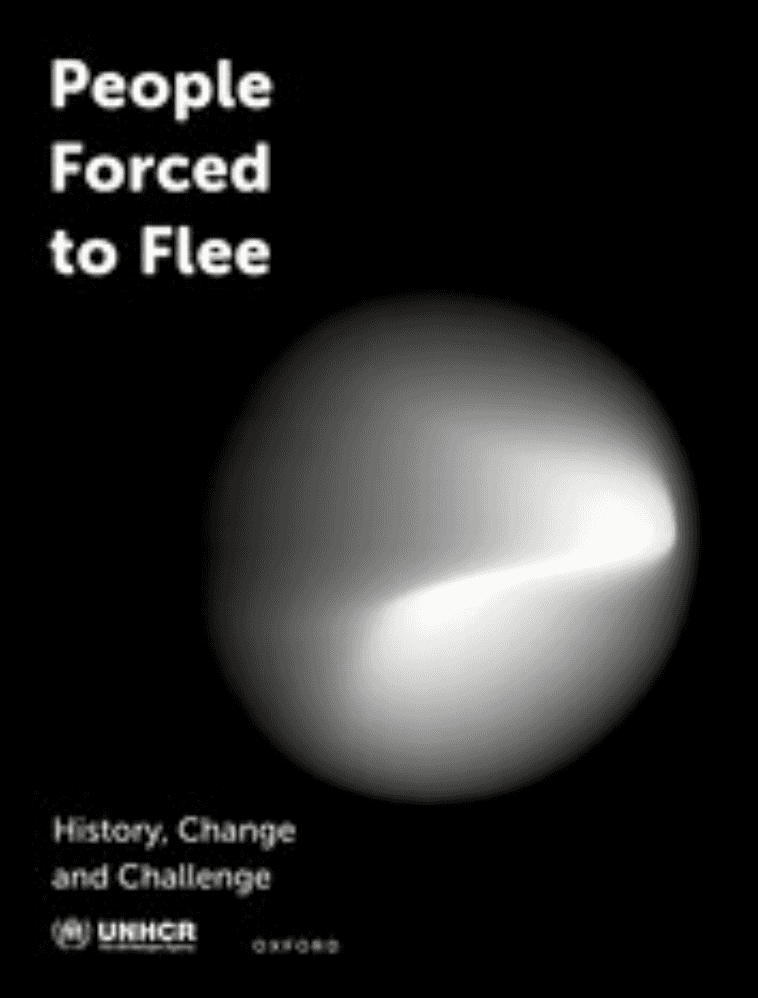
People Forced to Flee: History, Change and Challenge (2022)
UNHCR
Produced by UNHCR, the United Nations agency charged with safeguarding the rights and well-being of refugees, other forcibly displaced people and stateless persons around the globe. Traces the history of asylum from ancient period to modern times.

Mysteries shroud higher ‘migra-dollars’ to major remittance-receiving countries (2021)
Business Mirror
Some call it olfactory memory. It’s what Rodel Guco, standing near where water burbles on one of the shores of the seaport city of Valetta, Malta, says what his nose remembers after briefly taking off his face mask.
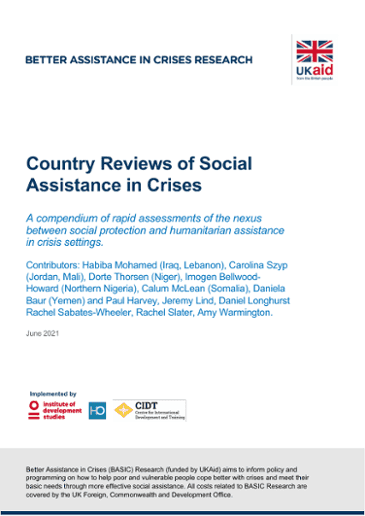
Country reviews of social assistance in crises: A compendium of rapid assessments of the nexus between social protection and humanitarian assistance in crisis settings (2021)
Institute of Development Studies
This collection brings together brief overviews of the social assistance landscape in eight fragile and conflict-affected settings in sub-Saharan Africa and the Middle East: Iraq, Jordan, Lebanon, Mali, Niger, Nigeria, Somalia and Yemen.
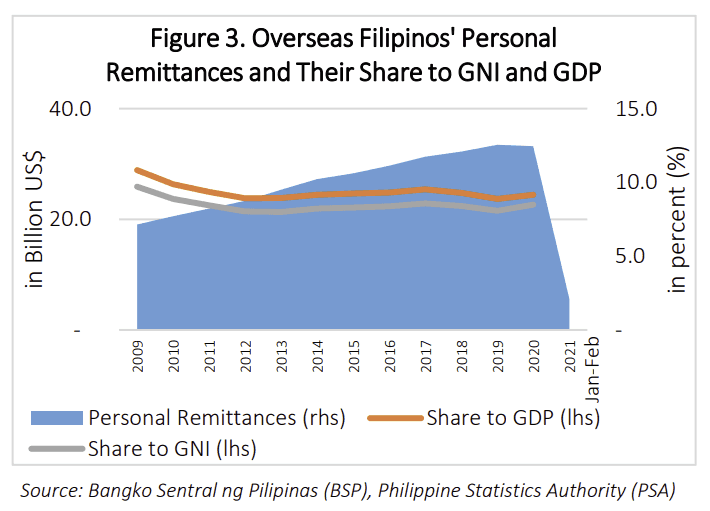
Effect of COVID-19 Pandemic on OFW Deployment and Remittances At A Glance (2021)
Senate of the Philippines
The Coronavirus Disease 2019 (COVID-19) pandemic slowed down global economic activity at an unprecedented scale and migrant workers and their families are among the hardest hit.
Small States Matters: Unravelling the COVID-19 Remittances Puzzle (2021)
The Commonwealth Secretariat
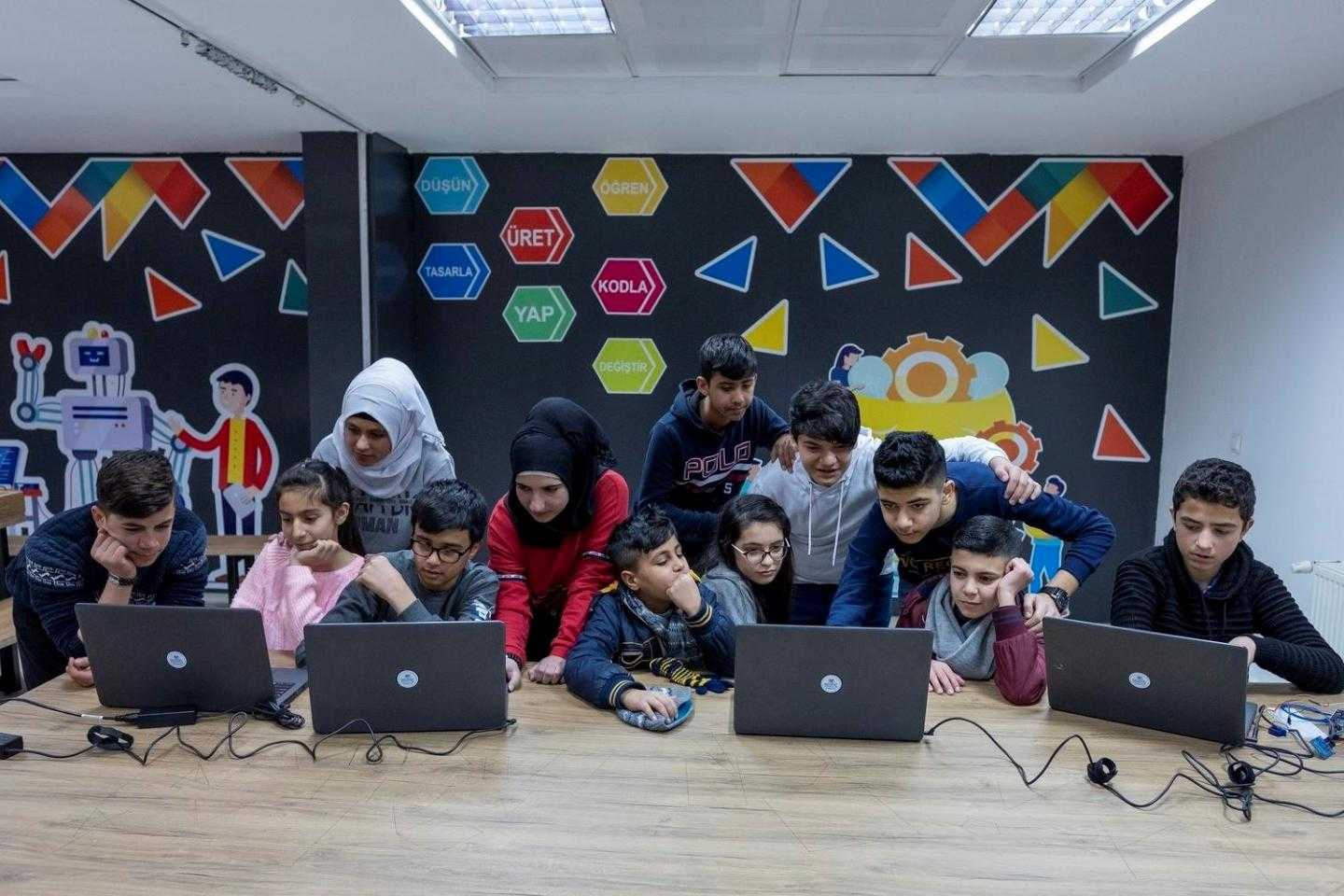
'Learning to earning' for displaced youth: Unlocking the power of digital technologies (2021)
UNICEF
The rising number of forcibly displaced persons (FDPs) and the growing duration of displacement have made building economic resilience a priority, particularly for young people. By 2019, the global population of FDPs had doubled to 80 million.
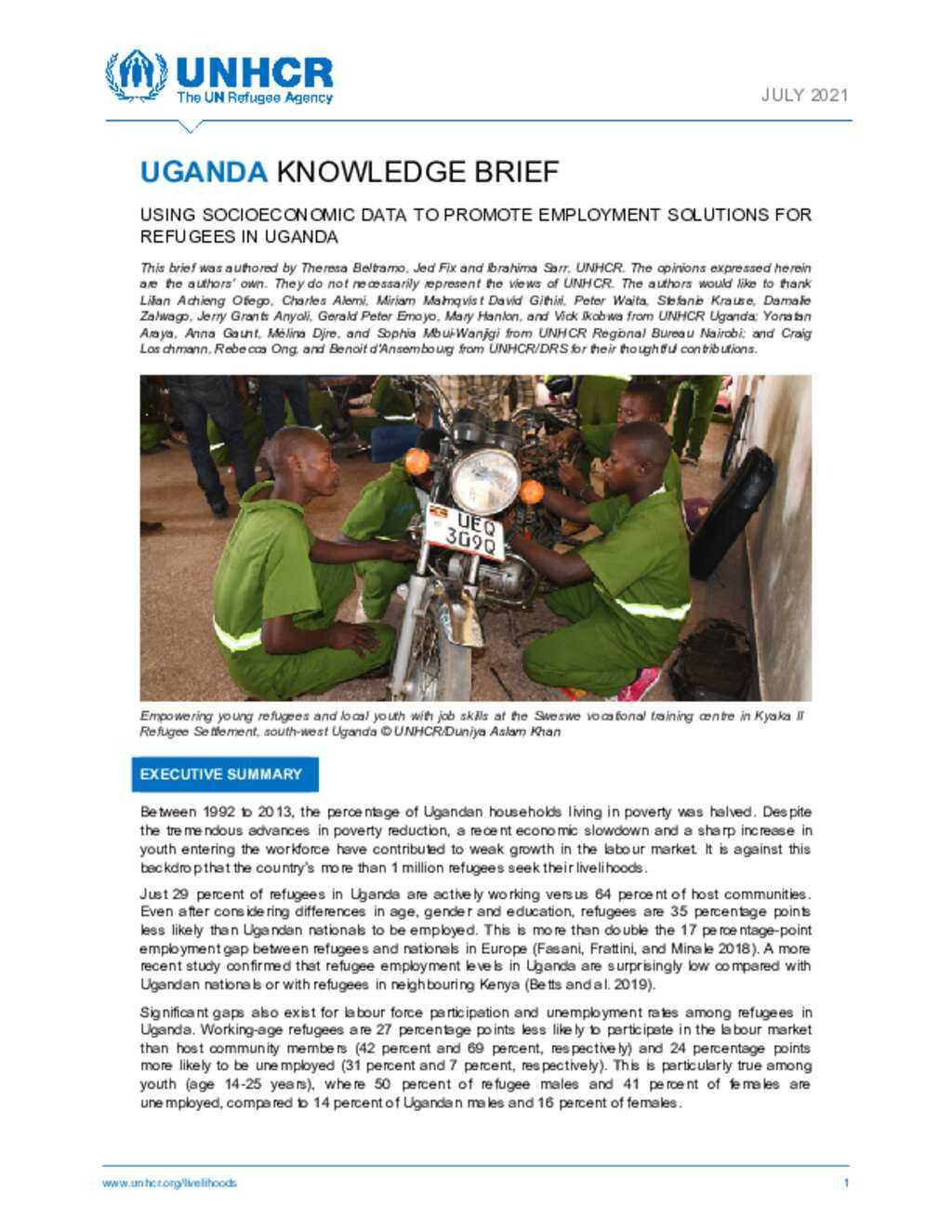
UNHCR UGANDA - Knowledge Brief: Improving employment outcomes for refugees - July 2021 (2021)
UNHCR
Using socioeconomic data to promote employment solutions for refugees in Uganda

Coming Home: Are Remittances in the ASEAN+3 Another Victim of the Pandemic? (2020)
ASEAN+3 Macroeconomic Research Office
Migrant workers and the remittances they send home play an important economic role in several ASEAN+3 member economies.
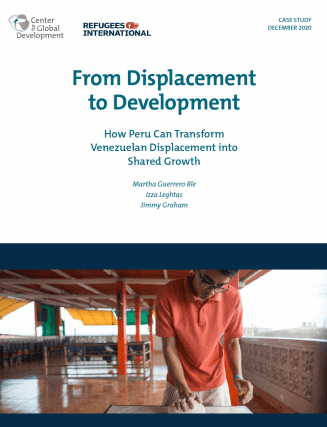
From Displacement to Development: How Peru Can Transform Venezuelan Displacement into Shared Growth (2020)
CGDEV
There are 5.5 million displaced Venezuelans around the world, with over one million living in Peru. The Government of Peru extended a relatively generous welcome, allowing Venezuelan health professionals to register....

Jobs for the forcibly displaced – evidence and data. (2020)
Joint Data Center on Forced Displacement
This month’s Literature Review Update focuses on jobs and livelihoods for those forcibly displaced. Some 15 recent articles are summarized on the evidence for various innovations and experiences in different settings, both in camps, as in Dollo Ado in Ethiopia, Kakuma in Kenya, Cox’s Bazar in Bangladesh, and at country level, with examples from Colombia, Jordan, Turkey and Sierra Leone.
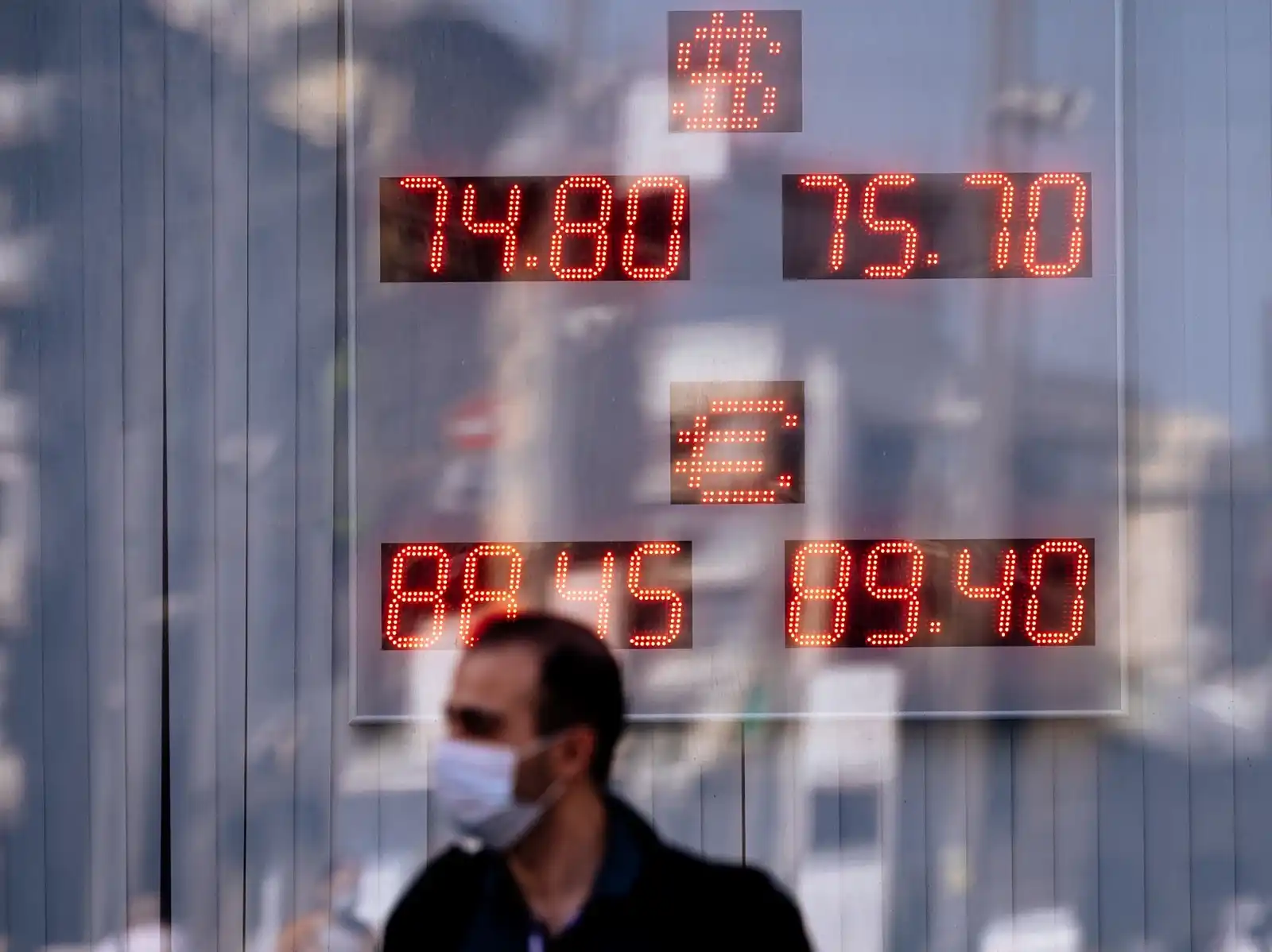
The Great Remittance Mystery (2020)
NPR The Indicatory by Planet Money
Each year, up to 270 million immigrants around the world send money to their home countries. In 2019, remittances hit an all-time of over $550 billion. Then the coronavirus pandemic hit, and triggered a global recession.

Remittances remain steady during COVID-19 despite predicted sharp decline (2020)
DMA Global
The COVID-19 pandemic has caused significant distress to families and economies worldwide, including to migrants and their remittances. Given the job losses and high rates of unemployment due to this virus, the World Bank had initially predicted remittances to decline by 20 per cent in 2020. However, for most receiving regions, this prediction has been contradicted by either steady or increased volume of remittances.

Stand by me: COVID-19 and the Resilience of Remittance Flows to LAC (2020)
UNDP
In the wake of COVID-19, analysts estimated that remittance flows (money sent home from migrant workers abroad) would face a steep decline. In late April, the World Bank projected an estimated 20% drop in remittances in 2020—which would have made it the “sharpest decline of remittances in recent history.”
